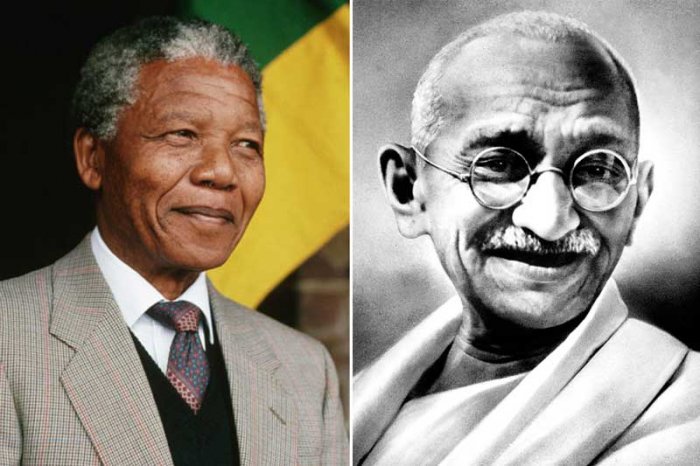JOHANNESBURG: Mahatma Gandhi and Nelson Mandela used their training and experiences as lawyers as they led their respective struggle for independence in Indian and against apartheid in South Africa.
This was the consensus among speakers at a panel discussion, titled ‘Gandhi & Mandela as Lawyers’, hosted by the High Commission at the University of South Africa.
The panellists were High Commissioner of India to South Africa Jaideep Sarkar, Justice Albie Sachs, retired Judge of the Constitutional Court of South Africa, Prof. Jo-Ansie van Wyk from the Department of Science at UNISA, Prof. Imraan Coovadia from the Department of Literature at the University of Cape Town, and Prof. Sihawukele Ngubane, Deputy Dean at the University of KwaZulu-Natal.
The speakers highlighted the similarities and differences in the approach of both Gandhi and Mandela.
Gandhi had developed his Satyagraha principle during his 20-year tenure in South Africa before returning to India to lead his home country to independence.
Mandela frequently wrote and spoke about Gandhi’s influence on him.
Sarkar explained the reasoning for the decision to host the panel discussion.
“This year marks the 150th birth anniversary of Mahatma Gandhi, and just by coincidence we are at the end of the 100th birth anniversary of Nelson Mandela as well, so we thought we would reflect on the life and thoughts of these two historical figures, the diplomat said.
Ngubane, commenting on the allegations in some quarters that Gandhi had been racist, said derogatory terms used by him to refer to Black South Africans were part of the accepted nomenclature at the time.
Today we are much more enlightened and consider those views as rude and racist, Ngubane said, referring to the fact that Gandhi had changed his views later, even working alongside leaders of that community.
Gandhi and Mandela both tried to bring lawfulness to the intersection of violence and non-violence, said Coovadia as he cited examples of how Gandhi had challenged existing discriminatory laws.
Van Wyk said Gandhi and Mandela had practised practical human rights long before this became universally acceptable. (AGENCIES)


